AMMAN —
Wadi Rum is a famed attraction whose
landmarks are distorted by piles of waste stacked near tourist camps dotting
the rose-colored desert sand.
اضافة اعلان
Authorities trade accusations about who is
responsible for the condition of the area, also known as the “Valley of the
Moon”.
The Rum Natural Reserve north of
Aqaba is home to
200 tourist camp sites, which produce several tonnes of waste daily, which
remains stacked near various encampments for several days. Municipal waste
compactor trucks say they cannot drive in the desert sand to reach the camps.
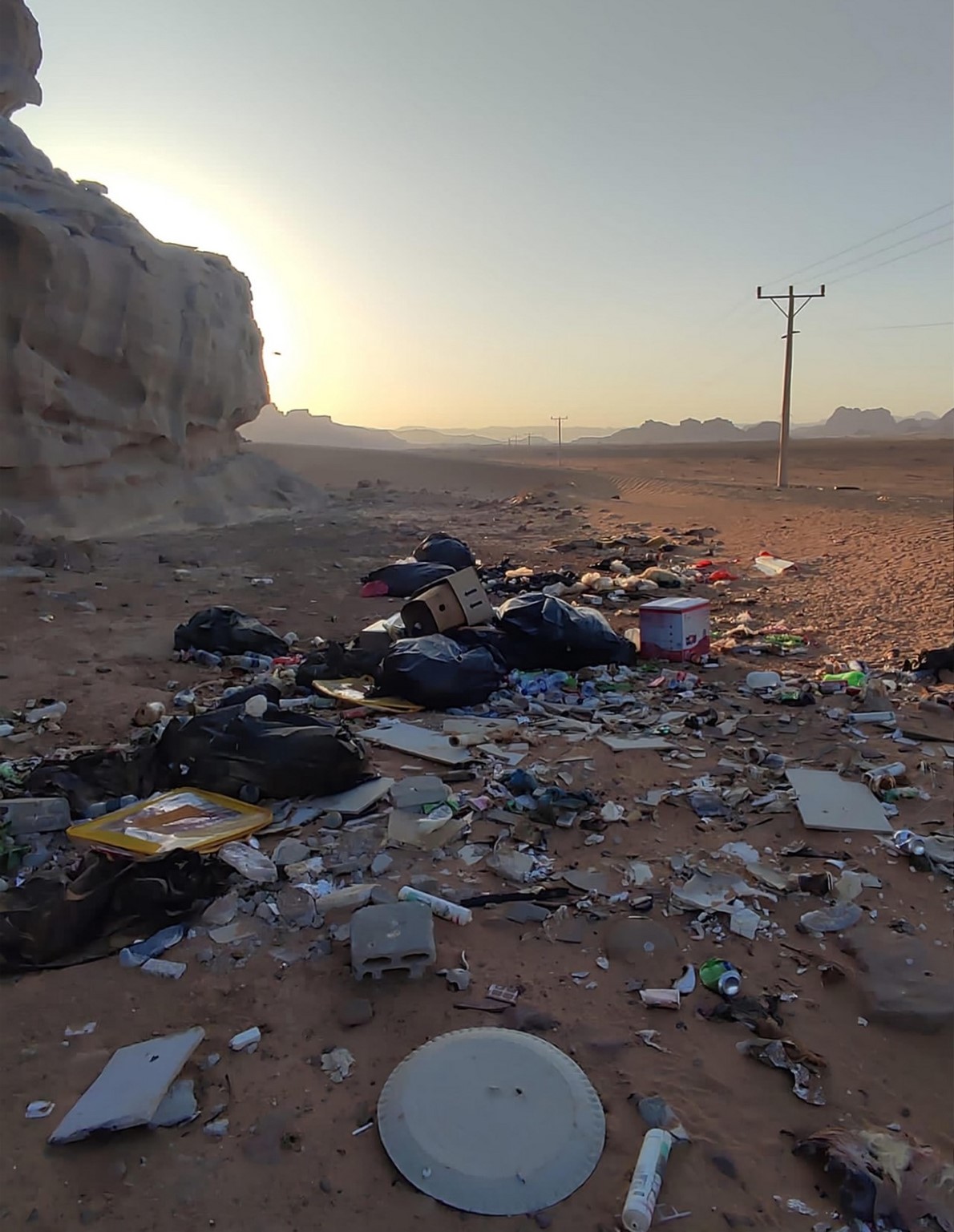
According to the
Ministry of Tourism and Antiquities, the total number of tourists who visited
various biblical and historic sites across the Kingdom last year reached 2.35
million.
Of the total, 194,000, or 8.2 percent toured Wadi
Rum in 2021, an increase of 79.9 percent, compared to the preceding year.
Salim Al-Zalabiah, owner of the Quiet Village Camp,
complained of the cost and the chore of carrying his camp’s waste himself to a
garbage collection station.
“My camp is 8km away from the nearest municipal
garbage collection point, and every other day, I transport 10–15 bags of litter
at my own expense, in my own car, which costs me JD100 ($140) monthly,” he
said.
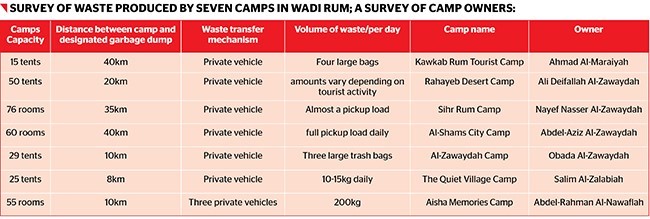
Zalabiah urged the
Aqaba Special Economic Zone Authority (ASEZA) to provide an appropriate dumpsite for the waste produced by
tourism camps. Wadi Rum is under ASEZA’s municipal jurisdiction.
“Most of the camps transfer their waste in private
cars to the village of Rum and dump it in any garbage container; sometimes we
deposit those trash bags in the main parking lot at Rum’s entrance,” he said.
The situation is no different for Abdel-Rahman
Al-Zawaydah, owner of Al-Zawaydah Camp in Rum.
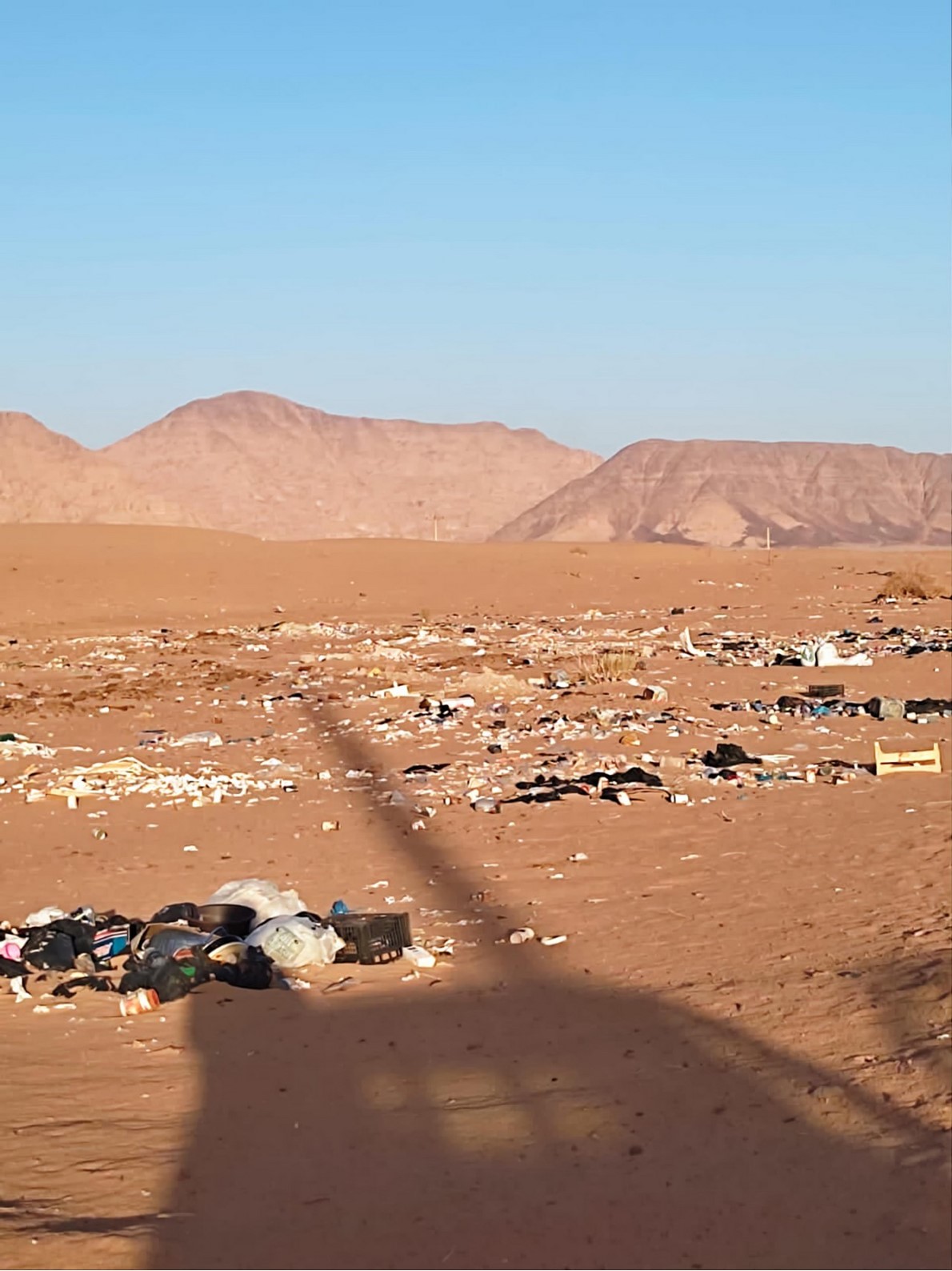
“We had to allocate a room where we collect the
waste, and we take the garbage bags every morning by three cars to the Rum
village,” he said.
“Unfortunately, the number of containers allocated
to the residents is not enough, and compactor trucks do not enter the campsites
because of the nature of the desert area,” he explained.
“The waste containers in the parking lot at the
entrance of Rum is another problem because this limits the parking space and is
a bad enough view in a touristic region,” Zawaydeh added.
He said his camp produces 200kg of waste every day.
Each car he uses to move the waste away from the camp costs him JD30, he noted.
“The camp is 10km away from the nearest garbage
point,” he said. “Some camps are forced to burn the waste, and this is a
disaster.”
The waste volume produced at the camps led some to
dispose of their waste into neighboring villages, such as Al-Disah.
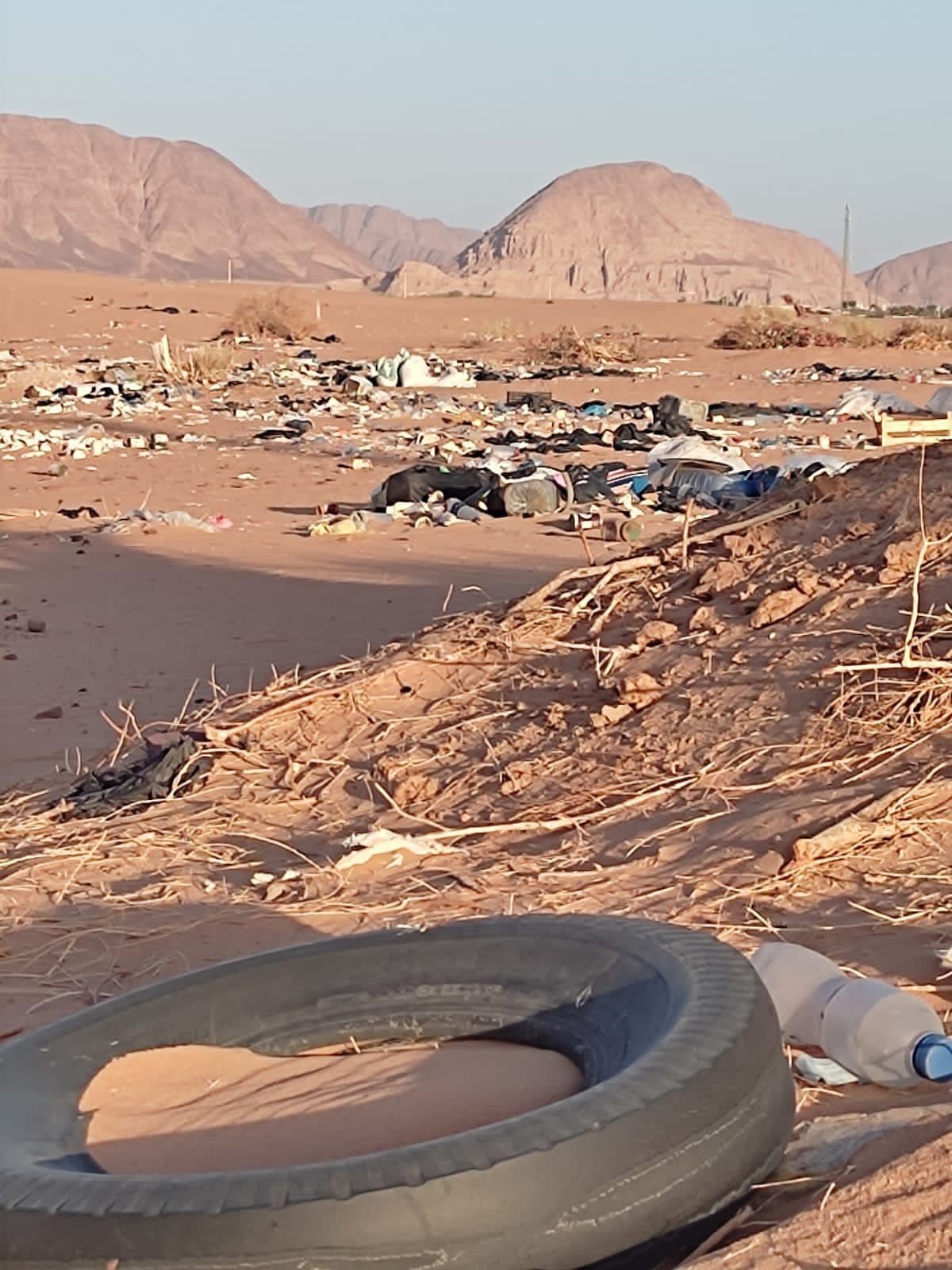
Faisal Mutlaq, head of the municipality’s
development unit, said four “dirty” outposts have been identified as landfills
hazardous-to-health on the outskirts of villages neighboring the Rum region,
pointing to the financial burden borne by the municipality.
Mutlaq said the municipality asked ASEZA to
intercede to resolve the problem of campsite waste, but did not receive a
response. “Either the waste will be burned on site or camp owners will set up
random landfills in separate areas,” he said.
But
Nidal Al-Majali, ASEZA’s tourism and environment
commissioner, replied to ARIJ. saying that campsite owners are responsible for
waste collection.
“They are responsible for removing the waste and
transferring it to a designated site at the entrance of the Visitor’s Center of
the Rum Reserve from where a waste collection company will pick it up,” he
said.
Majali said the waste collection company is the same
one in charge of waste collection in Rum region, and has 11 employees working
seven days a week and its compactor truck collects waste on a daily basis.
When Majali was presented with pictures of the piles
of garbage at certain sites, he said: “The pictures must have been taken a
half-hour or one hour before the compactor truck was due to arrive.”
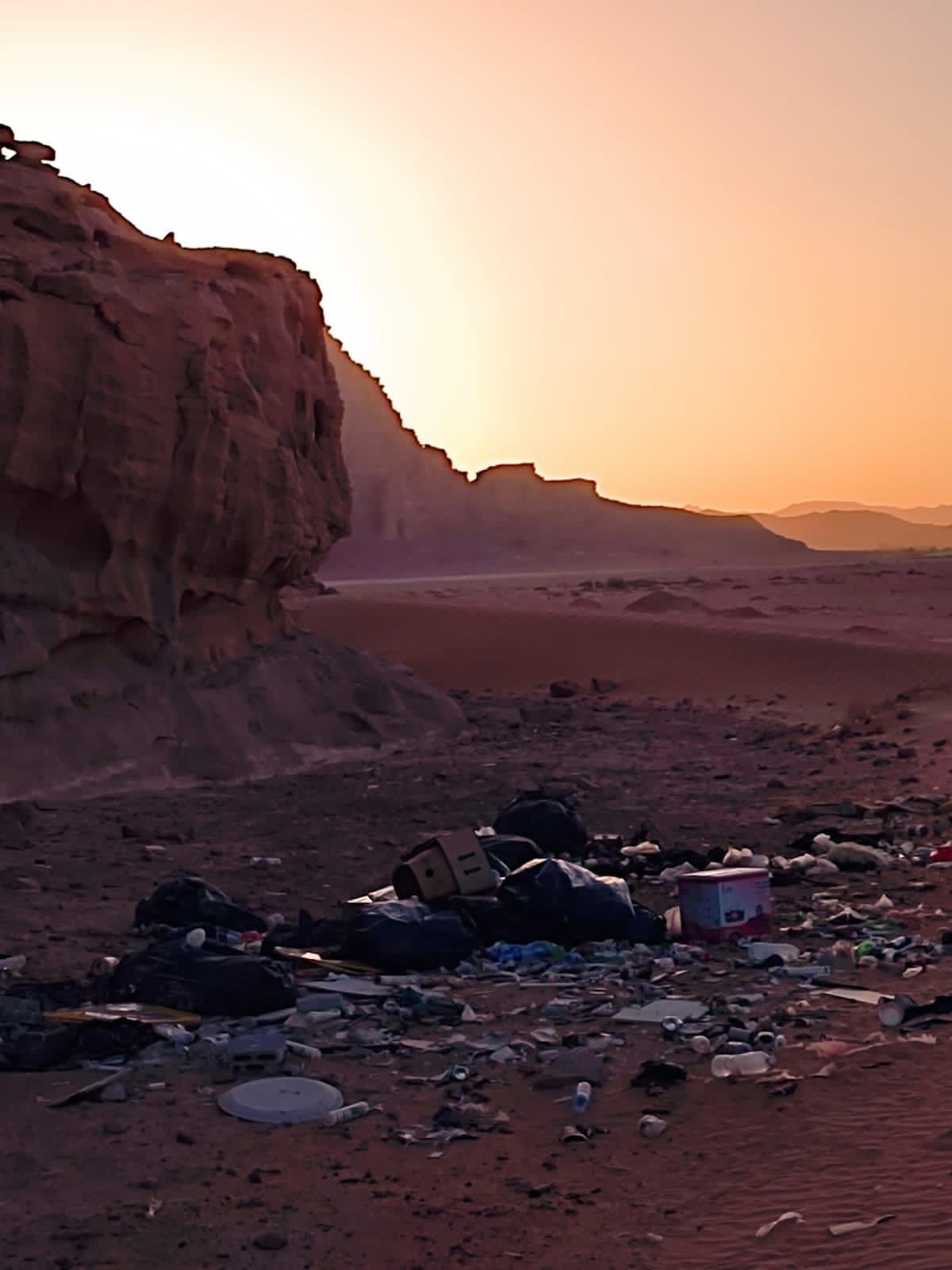
He said that such complaints were “repeated often
and are of malicious nature whose purpose was to pressure ASEZA to appoint
someone at the garbage collection company “.
Majali said that ASEZA will soon introduce a system
for registering camps to force their owners to pay annual municipal fees in
return for garbage collection, just like hotel owners.
“Since the camps were put up, their owners have not
paid one single dinar for waste collection,” Majali said.
Rum, a scenic region, is home to important fauna and
flora that could be endangered by the waste crisis, according to Mohammad
Al-Tawaha, acting executive director of the Royal Marine Conservation Society.
“The presence of waste in some environmental sites
can pose a real threat, such as the elimination of certain plant, grass or
flower species,” Tawaha said. “The presence of some medical waste such as used
needles can lead to serious consequences.”
As the sun settles away from the camp sites, its
magic is quickly replaced by lines of smoke from the burning garbage in the
evening.
Meanwhile, as the concerned sides lay blame on each
other, a solution for the camps’ waste appears distant at one of the Kingdom’s
prime touristic attractions.
This story
was published in collaboration with ARIJ.
Read more Features
Jordan News



